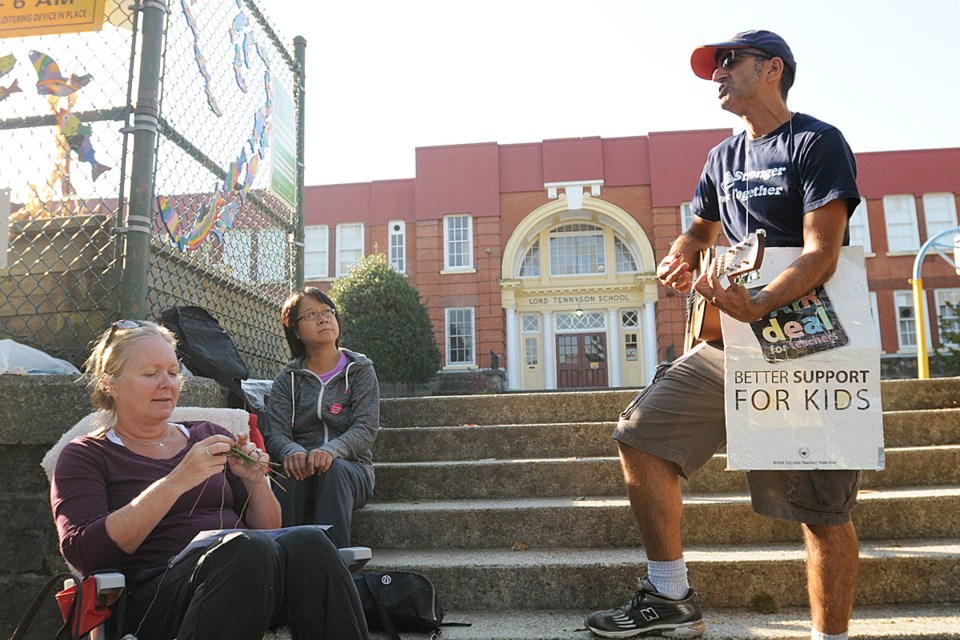The B.C. Teachers’ Federation will apply to take today’s B.C. Court of Appeal ruling to the Supreme Court of Canada, BCTF president Jim Iker told reporters Thursday at a press conference held not long after the court decision was announced.
Iker called the appeal court’s judgement disappointing.
“This is not the decision that teachers and workers across the country were hoping for today,” he said.
“We fundamentally disagree with the decision which focuses on pre-legislative consultation by government,” he added, noting one of the appeal court justices held a dissenting view from the other four.
The B.C. Court of Appeal overturned previous B.C. Supreme Court decisions about the constitutionality of government legislation, Bill 22, regarding teachers’ rights to bargain class size and composition.
Iker noted the ruling that the government’s earlier Bill 28 was unconstitutional still stands.
Four of five B.C. Court of Appeal judges disagreed with B.C. Supreme Court Justice Susan Griffin’s previous rulings.
“The trial judge’s finding that the province had failed to consult in good faith was based on errors of law and palpable and overriding errors of fact,” says the summary to the majority judgment authored by Honourable B.C. Chief Justice Robert Bauman and Justice David Harris. “Between the consultations and the collective bargaining leading up to the legislation, teachers were afforded a meaningful process in which to advance their collective aspirations...”
Dissent came from Honourable Justice Ian Donald. He agreed the government’s consultations were relevant. But Donald doesn’t believe Griffin erred when she said the government failed to consult in good faith.
A second B.C. Court of Appeal decision about confidentiality was unanimous. Griffin had ruled it was OK for the BCTF to quote cabinet documents, which weren’t to be disclosed to the public, in its written submissions. Griffin found the documents were important to the BCTF’s allegation of bad faith.
The appeal court says information from the cabinet shouldn’t have been quoted by the BCTF.
Premier Christy Clark was pleased with the “clear and unambiguous” decisions of the court of appeal. She said the ruling and the six-year contract reached with teachers last September provided an opportunity for the government, the BCTF and teachers to put disputes behind them. Education Minister Peter Fassbender concurred.
Iker said he doesn’t believe the government is trying to make peace when it’s requiring underfunded school boards to find millions of additional savings in administrative costs, and when it introduced another bill, Bill 11, with no consultation. The government says Bill 11 is about accountability, efficiency and professional development. Iker says Bill 11 could have implications for how school boards operate, how student data can be used and how professional development is controlled.
It is unusual for five judges to consider an appeal in B.C. Traditionally, the court sits three. In 2014, the appeal court sat five justices on three of 453 appeals; in 2013, two of 453 appeals.
The BCTF has until the end of June to appeal the case to the Supreme Court of Canada. Then that court has to decide whether it will hear the appeal.
Iker believes the BCTF will have to repay the $2 million it was awarded in a lower court decision. Money for the potential fight to the Supreme Court of Canada will come from members’ dues.
twitter.com/Cheryl_Rossi



